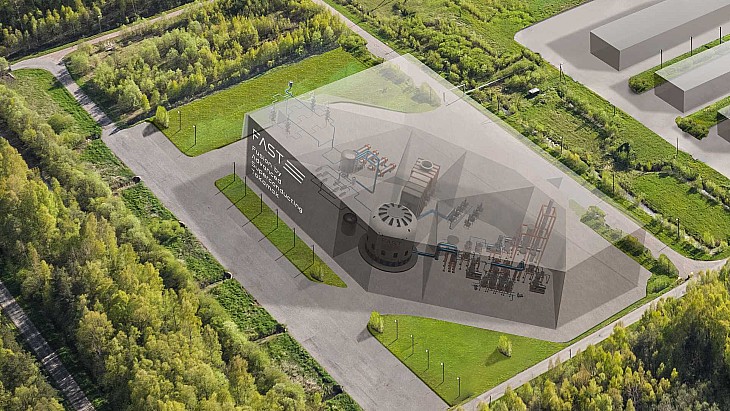The report, Climate Change and Nuclear Power 2018, was published last week and has been updated from the last report released in 2016 "to include the latest scientific information and analyses on the link between energy production and climate change".
The Paris Climate Change Agreement, which aims to keep global temperature increases this century well below 2ºC, and to drive efforts to limit temperature increases to below 1.5ºC , was adopted in December 2015 at the 21st conference of the parties (COP21) to the United Nations Framework Convention on Climate Change (UNFCCC) held in Paris. It entered into force in November 2016.
IAEA Deputy Director General Mikhail Chudakov said: "This scenario requires a significant scaling up of all clean, low-carbon technologies such as nuclear power, with electricity demand expected to rise sharply in the coming years as countries need more power for development. If nuclear power deployment doesn't expand in line with this scenario, the other technologies may not fill the gap - and we may not meet our climate targets."
The production and use of energy accounts for almost two-thirds of total greenhouse gas (GHG) emissions, contributing significantly to climate change. The IAEA notes that around 70% of the world's electricity is currently produced through the burning of fossil fuels. To meet climate goals by 2050, 80% of electricity will need to be from low-carbon sources, it says.
"As a large scale energy source, nuclear power has a significant potential to contribute to GHG emissions reduction," the new report says. "Nuclear power has avoided a significant amount of CO2 emissions in recent decades. In the absence of nuclear energy, and assuming fossil fuel technologies had produced the corresponding amount of electricity according to their historical shares in the electricity mix, CO2 emissions would have been considerably higher." The IAEA estimates that nuclear power avoided the emission of some 68 gigatonnes of CO2 between 1970 and 2015.
The IAEA said the new report considers how "the nuclear industry's efforts to address challenges to greater deployment of nuclear power - such as radioactive waste management, safety concerns and high investment costs - could significantly boost the potential of the low-carbon source to contribute to climate change mitigation". Such efforts, it says, include "progress in the development of waste disposal repositories, reactors with passive and inherent safety systems, reactors that generate less waste and reactors with alternative cost models".
The IAEA said it hopes the report will "make a useful contribution to the deliberations of policy makers participating in the activities of forums including the UNFCCC, which provides the international framework for addressing climate change."
In a separate publication released last week - titled Energy, Electricity and Nuclear Power Estimates for the period up to 2050 - the IAEA warned that nuclear generating capacity could shrink as old reactors are retired and "the industry grapples with reduced competitiveness".
Nuclear generating capacity is projected to reach 511 GWe by 2030 and 748 GWe by 2050 in the IAEA's high growth projection. This represents a 30% increase over current levels by 2030 and a 90% increase of capacity by 2050. The low case projects a 2030 nuclear capacity of 352 GWe, rising slightly to 356 GWe in 2050.

.jpg)



_82983.jpg)
_34792.jpg)
_16403_79272.jpg)


_76087_55556.jpg)



